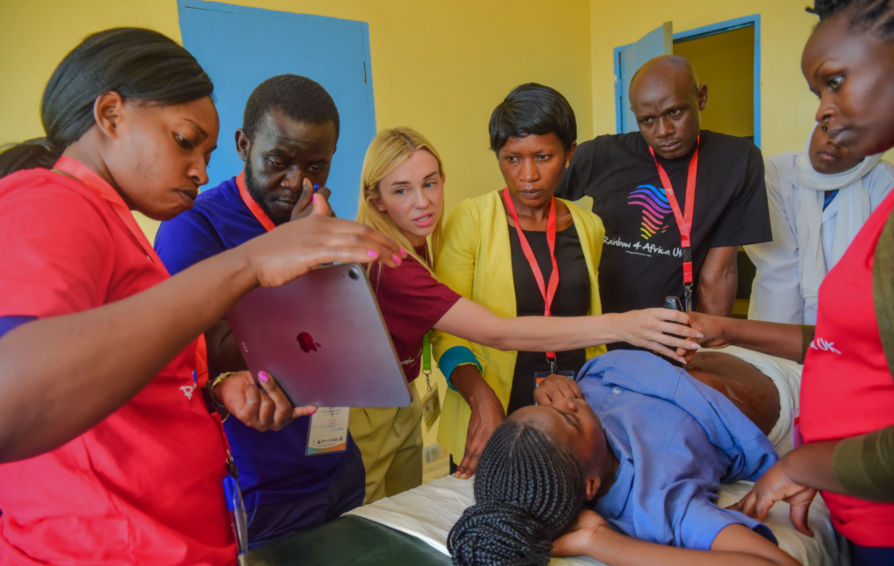Could point-of-care ultrasound (POCUS) be the key to saving the lives of expectant mothers and babies in rural Kenya? A new international project aims to tackle the country’s high maternal mortality rate by training rural midwives, nurses and doctors to use POCUS in antenatal care. Emma Polgar, Ultrasound Clinical Application Specialist at Mindray UK, was among the volunteers who joined the project’s first teaching cohort in October 2024. Emma joined in personal capacity, and in support, Mindray UK has donated a TE Air wireless handheld ultrasound probe to the project.
Improving Access for Earlier Interventions

The practical training is part of a 5-year international project being rolled out across Kenya by the UK charity, Rainbow4Africa, along with its sister charity, Rainbow4Kenya, and the Masinde Muliro University of Science and Technology (MMUST). It is one of 14 projects that have received grant funding from the UK government's Tropical Health and Education Trust (THET).
?
Kenya continues to have very high maternal and neonatal mortality rates. 90% of women don’t get ultrasound due to the cost of both medical care and travelling to hospital which can be hundreds of miles away. Most mothers deliver their babies at home. This means hidden complications such as having twins or a breech baby, can go undiagnosed, increasing risks for mums and babies.
?
To relieve some of the financial pressures of maternal care the Kenyan government has introduced schemes such as ‘Linda Mama’ - free health insurance for impoverished pregnant women during pregnancy and three months post-partum. There is still a fee for point-of-care ultrasound, but if mums seek antenatal care at a local clinic as opposed to a hospital, the cost is much lower.
?
To improve availability and quality of care, international projects are being launched to support healthcare professionals and infrastructure. This project aims to encourage earlier antenatal ultrasound scanning so doctors and midwives can identify high risk pregnancies sooner and refer mums to level 4 hospitals for tertiary care.
Practical, Hands-on Instruction

For many participants it was their first time using ultrasound. The course begins with an introduction to the physics of how ultrasound works, but the majority of time is dedicated to practical, hands-on training.
?
“These are life-saving examinations,” explains Emma. “Even knowing how many babies you have makes a difference – the first woman I scanned found out she was having twins! Using the ultrasound system we showed how to check the number of placentas. In this case there were two. This is critical information. If a placenta is not removed after the births, it could cause sepsis.
?
“We focused on the most essential checks such as, how the baby is laying – are they head or bum down? Is the placenta blocking the exit and at risk of rupture during labour? Is there enough fluid around the baby or do we need intervention for a leak in the amniotic sac?
?
“By the end of the course we were helping them to do measurements so they could estimate how old a baby is.”
The Bigger Picture
Dr. Massimo Gozzelino, Chairman of Rainbow for Africa UK and the Board of Trustees, explains the project further. “This year, Rainbow4Africa gained funding from THET for a POCUS school with MMUST. That’s allowed us to scale-up the local ultrasound training courses we’ve developed with the university over the last 3 years.
?
"We have three main objectives. First is to create the teaching materials. Second is to deliver two workshops this year, and third to fund the technology and increase adoption. Our aim is to train 80 clinicians per year for the next 5 years. As part of that we will create an international clinician network that supports continuous professional development.
Emma added, “It's been really rewarding to teach this first cohort. They were fully engaged and asking lots of questions. You can get so much information from an ultrasound scan and I am sure the project will have a very real and positive impact for Kenyan mums.”



